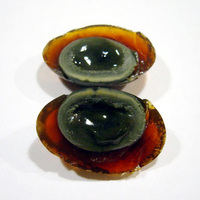- Home
- Asian food
Blog Categories
Recent Posts
5 Asian Fermented Foods to Know
Posted by on
ou probably know that tofu, soy sauce, kefir, miso, tempeh, kombucha and yogurt are fermented, but let’s take a closer look at some of Asia's other fermented and cultured foods. Although other countries have adapted many of these healthy dishes for their own palates, the original recipes and traditions are still alive and well in Asian countries.
Fish Sauce
Though this sauce originated in Ancient Greece and Rome, today it’s most widely used in southeastern Asian dishes, especially Thai and Vietnamese. The recipe hasn’t changed; it’s still just salt, fish, pressure, and time. No water. And the sauce is still made from the entire fish – head, bones, gut, skin, and flesh. Even though it doesn’t sound that appealing, fish sauce is high in minerals and B-vitamins, and can be used as a condiment in other dishes
Worcestershire Sauce
Even though the name sounds British, this dark sauce is actually a fermented condiment that originally hails from South Asia. Food historians believe that a British governor in India had his chemists adapted it for British tastes. And even with some recipe changes to the sauce, it’s still made from real fermented anchovies 1.
Kimchi
This Korean type of fermentation 2 was originally developed to preserve the texture and flavor of vegetables during the winter, when fresh vegetables weren’t available. Although most Korean kimchi starts with cabbage, many countries have developed variations on the original recipe. One Asian variation is made with bok choy, Thai basil, whole green onions, fresh ginger, garlic and chiles. Used as a condiment with Asian foods, kimchi is also used to season soup and rice dishes.
Tamari
There are 5 traditional types of soy sauce 3 made in Japan. Tamari, a thick reddish-brown fermented sauce from central Japan, is popular in the West because some people believe it’s made without wheat. Although most of the wheat gluten is broken down and eaten by the yeast during the fermentation process, if you have celiac disease or are gluten intolerant, read the label first. Some Japanese companies like San-J International and Kikkoman do make gluten-free or wheat free soy sauce, and not all tamari is gluten-free.

Duck Eggs
Originally a Hunan dish, preserved or fermented duck eggs, also called century eggs, thousand year eggs, and hundred year eggs, aren't as old as their name. These delicacies are made by rolling the eggs in a mixture of salt, ash, and quicklime paste, and aging them for a few months 4. They can be eaten out of the shell with vinegar and sesame oil, and turn a blackish-brown color after fermenting.
Now that you’ve seen a sampling of Asian fermented foods, tell us about your favorite cultured dishes. Where is your family from, and what fermented foods are favorite treats on your dining table? What cultured foods haven’t you tried, that you’d love to taste? Feel free to share this post, too – and if you can get your hands on fermented duck eggs, trust me. They’re better than they sound. And yes, that picture on the left is a century egg.
Image Credits: "Century egg sliced open" by Kowloneese at the English language Wikipedia. Licensed under CC BY-SA 3.0 via Wikimedia Commons -
References:
1. http://www.marksdailyapple.com/the-wonderful-pungent-world-of-asian-fermented-condiments-and-why-you-should-visit/#ixzz3PVoeMNFx
2. http://paleoporn.net/paleo-tacos-kimchi/
3. http://justhungry.com/handbook/just-hungry-handbooks/basics-japanese-soy-sauce-all-you-need-know
4. http://www.seriouseats.com/2011/07/seriously-asian-preserved-duck-egg.html
Information provided in this communication is not designed to and does not provide medical advice, professional diagnosis, opinion, treatment or services to you or to any other individual. This is general information for educational purposes only. The information provided is not a substitute for medical or professional care, and you should not use the information in place of a visit, call consultation or the advice of your physician or other healthcare provider. Wise Choice Marketing Inc is not liable or responsible for any advice, course of treatment, diagnosis or any other information, services or product you obtain through Wise Choice Marketing Inc.



 Loading... Please wait...
Loading... Please wait...












